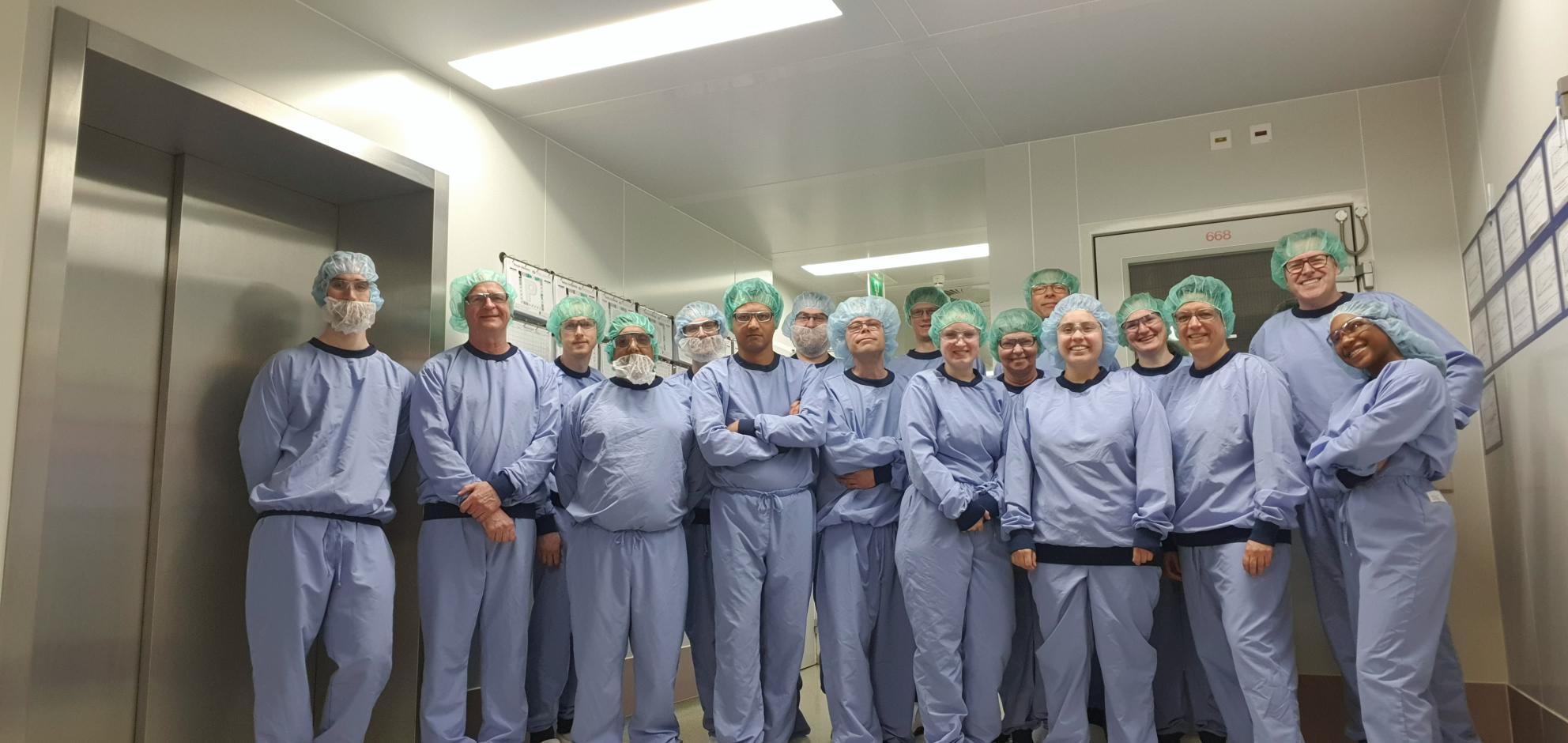
Improving the productivity by working smart
When you ask the people in our U3 bacterial production facility what is driving the increase in productivity in their plant, they all tell the same story. It is driven by working smarter. It is not the objective of one person to aim for this; no, all 22 persons that work in U3 are actively looking for ways to improve production processes, all the time.
Smart processes
“In my role that means checking our processes and procedures for ways to make them more efficient and less prone to making mistakes,” explains Marijke. Marijke is Senior Quality Engineer in the plant. Whenever something happens that is not according to the procedures, she investigate whether the incident had an effect on the quality of the product they are making and if so, together with the team involved, decide on which actions could be taken to save the product and which actions could be taken to prevent the mistake from happening again. “It is my responsibility to discuss the proposed actions with the quality department and when they agree, we continue swiftly. Me and my colleagues use these incidents to improve our processes and this way the production process becomes more robust.”
Robust processes
The product that is made in the bacterial production unit is a immunostimulant that is used in the treatment of bladder cancer. “We all feel the same when incidents happen that lead to the destruction of a production batch. There is not enough of this immunostimulant to treat all patients who need it, so we feel that we are letting down patients when we do not live up to our full potential,” says Erik. Erik is senior supervisor of the operators in the U3 production plant: “We work with living cells from start to finish. We start with a small vessel where we grow bacteria. We then create the right circumstances for the bacteria to prosper, give them the right amount of nutrients, keep the vessel at the right temperature, etcetera. Once the small vessel is full of bacteria, we transfer them into a medium size vessel and eventually to a large vessel that can hold up to 1200 litres. Every time we add something to a vessel, the media for example, a contamination could also enter the vessel. In the past, that did sometimes happen. That created a lot of additional work and a lot of disappointment within the team. You work so hard to create a batch and then you have to destroy it. By creating a more robust production process incidents like these are now in the past. When we now start a batch, we finish a batch.”
The stability this created has offered the team more time to make improvements. Together with the maintenance team they have developed a rolling maintenance of the equipment, meaning that they use the days that a vessel is not active in the production process to perform the maintenance and have the vessel ready by the time it is needed again. Smarter planning like this will result in an additional production batch this year.
Knowledge production process
“This is only possible when you know the production process really well,” Dianthe, one of the operators in U3 adds. “When I joined last year, after my internship here ended, it took 2-3 months to learn the full process, we take the time to get a good understanding of the process.” Dianthe is also one of the 22 persons that are involved to improve the processes: “Even as one of the youngest, I feel encouraged to express my thoughts and to suggest improvements. During the workday it is relatively easy to run small experiments while you are waiting for a process to finish, like additional testing.” During her internship she improved a protocol that left too much room for interpretation. “I really like to have interns added to the team. Because they have just learned something, like pipetting for example. I ask them observe and make comments to the rest of team that have been doing it for many years and perhaps accumulated some bad habits along the way. This way we keep ourselves sharp, leading to smaller room for errors and a more standard operation,” says Erik.
It never ends
This process of working smarter never ends. There are always more ways to improve. Paul, one of the Production Engineers adds: “one of my tasks is to analyse the data collected during the production process. With a robust production process like ours, you get consistent data. I use the data to get an even better understanding of our production process. This understanding leads to even more ideas to work smarter. Together with our research department we run experiments and this could lead to additional improvements. Another element of my job is to find out if these changes would be feasible and to facilitate the change process that is part of working in a GMP surrounding. I don’t think we will ever be done improving our production process. Every time we improve, we get new data, and new ideas to improve.”
| Share |








|






